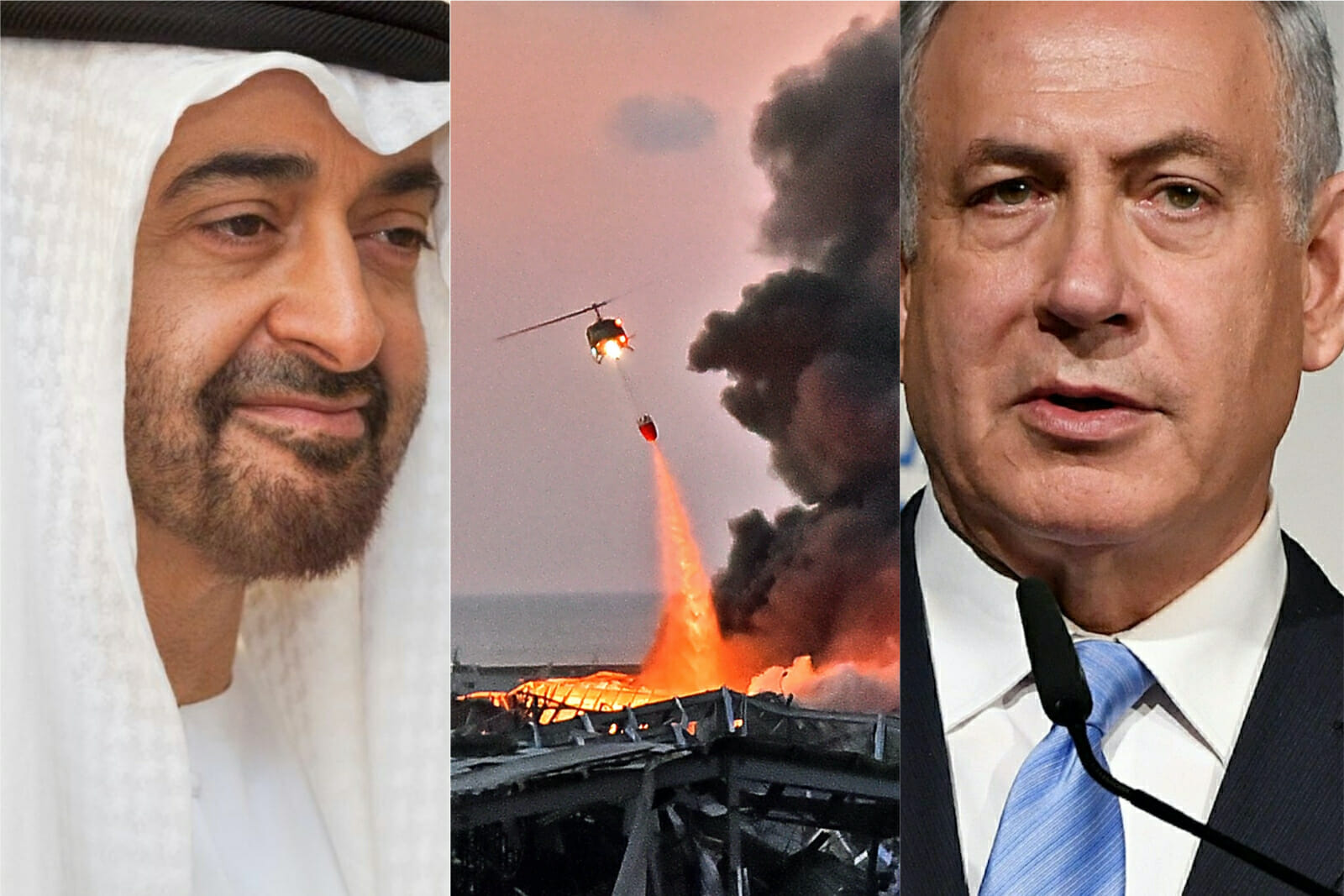
Government-society Disconnect at the Heart of Beirut Port Blast and Israel-UAE Normalization
What do the Beirut port explosion and the announcement by Israel and the UAE that they are going to normalize relations have in common? They highlight a problem facing the Middle East: the disconnect between political elites and society. As for the response, effort has to come from both, with leaders meeting the public halfway. If they do not, then they risk seeing tensions grow.
That the problem and the response are broadly the same belies the differences in the nature of the events. On August 4, the blast in Beirut occurred during a period of acute economic crisis for Lebanon that has been exacerbated by the coronavirus pandemic. The country has faced a major financial crisis over the past year, compounded by a stagnant economy and development model. Following a previous economic decline of 2% of GDP in 2018 and 6.5% in 2019, the IMF predicted that contraction would double, with the economy falling by 12%.
The explosion was the result of nearly 3,000 tons of ammonium nitrate that had been at the port without sufficient security arrangements for six years and left nearly 200 people dead, nearly 6,000 injured and several hundred thousand people homeless. Questions were immediately asked about how it was possible for such a dangerous substance to sit unchecked for so long. Although port officials were immediately arrested, critics believed the problem went further up, to the politicians and judges who had been warned about the risks and had failed to act.
The government resigned. But it had only been in office for six months, having replaced an earlier one that had also stepped down in the wake of the growing protest movement against the economic situation since last October. Both governments were regarded as representative of a failing political system, made up of political parties that have dominated the country since the end of the civil war in 1990 and which privileged its leaders and the economic elite, at the expense of wider society.
Just over a week later, on August 13, the region’s politics appeared to be profoundly shaken up when Israel and the UAE announced publicly that they would begin talks to normalize relations with each other, by establishing diplomatic relations and working together on different sectors, including tourism, trade, security, education, and healthcare. While many were surprised by the announcement of the so-called “Abraham Accord” and immediately prompted speculation about the wider regional implications of formal relations between Israel and the UAE. The two states have discreetly cooperated with each other in recent years, including over security as well as more recently, in response to the coronavirus.
The announcement was a political coup for Israel’s Prime Minister Benjamin Netanyahu, who faces problems at home. He is currently facing a court case for alleged bribery and fraud and has also had to deal with rising protests against his handling of the economy and the official response and management of the coronavirus threat.
The Abraham Accord was also welcome because it deflects attention away from his failure to press ahead with the partial annexation of the West Bank, which U.S. President Donald Trump had effectively given a green light for, following the publication of his own proposals for resolving the Palestinian-Israeli conflict in January 2020. Many of Netanyahu’s voters – the political and religious right and settlers – have long hoped for annexation and so were bitterly disappointed when it did not happen at the beginning of July.
As for the UAE, officials claimed that the possibility of improved relations with Israel had come at a price. Namely, that annexation be removed from the table. While the Emiratis had to pay lip service to their fellow Arabs, the Palestinians, the principal motive for normalization was self-interest. Israel has since made it clear that it has not abandoned annexation, but only suspended it for now.
In terms of gauging the public response to the UAE move, this has proved more challenging. Two days after the Abraham Accord, the UAE public prosecution office tweeted a reminder of its “My Safe Society” app, through which residents could confidentially pass on information about “threats” they discovered in the media and elsewhere.
So far, the most public statements have been those which backed the announcement, while contrary voices have been largely absent, prompting commentators to be circumspect. This may well explain the oblique tweet posted by the Emirati political scientist Abdulkhaleq Abdulla, which consisted of nothing more than a crying face emoji.
If UAE residents feel constrained by their ability to respond to the announcement, the general consensus is Arab opposition to any cooperation with Israel. For the 2018-19 edition of the Arab Barometer survey, in 10 of the 11 countries surveyed less than a quarter of those consulted agreed with the decision.
Looking across the three countries, it is striking how disconnected the political leaderships are with the wider public. It is also notable that this is the same in all three cases, regardless of the political system – whether it is a democracy like Israel or Lebanon, or a more authoritarian and repressive environment, as in the UAE.
That this disconnect exists is also not unique to these three countries, but part of a wider regional dynamic as well. For example, there have been protests against the leadership in Sudan, Algeria, Iraq, and Iran over the past year, while reaching back further, the uprisings in 2011 were the consequence of public frustration with the unresponsiveness of government and the failure to provide sufficient and good quality public services, jobs, and income.
Looking ahead, the solution for the elite-mass divide in Lebanon, Israel, and the UAE lies in both working together and reaching a compromise. For leaders, they will need to become more responsive and engage with the demands from the street (as in Lebanon and Israel) or the suppressed concerns of the people (as in the UAE). If they do not, that may only entrench the division and exacerbate grievances. The failure of the uprisings in Libya and Syria after 2011 and the descent into armed insurrection and war are extreme examples of what can happen if governments do not respond.
For society – and especially the protest movements – they face the choice of framing their claims and organization: whether integrating into the current political system, or developing new forms of representation to represent their demands. In the case of Lebanon and Israel, that will mean either incorporation into the established political parties or creating new ones which can offer an alternative. In the UAE the challenge will be greater, owing to the more limited space available for civil society and the absence of political parties. There, it may involve less direct reference to government objectives and actions, and a greater focus on pursuing a reformist agenda through economic, social, and cultural sectors.

